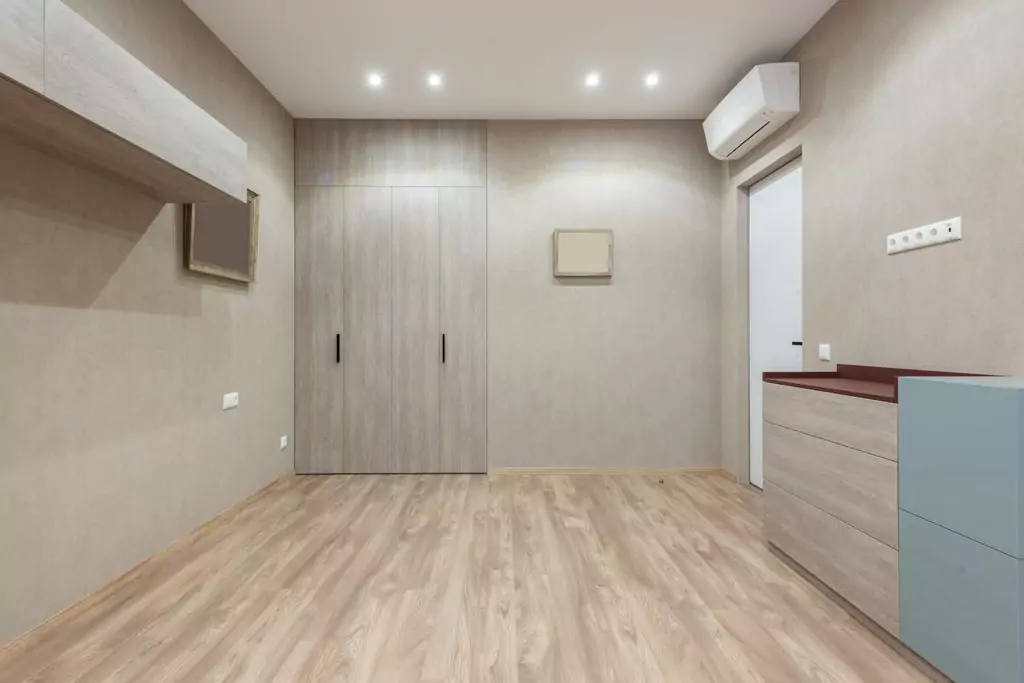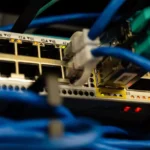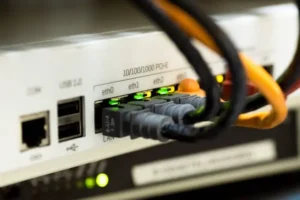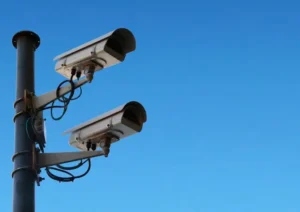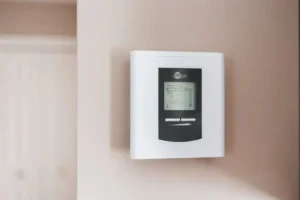Now Reading: Why My Home Internet So Slow and How to Make It Faster
- 01
Why My Home Internet So Slow and How to Make It Faster
- Home
- Home Internet
- Why My Home Internet So Slow and How to Make It Faster
Why My Home Internet So Slow and How to Make It Faster
![]() Anne MaddisonHome InternetAugust 20, 2025112 Views
Anne MaddisonHome InternetAugust 20, 2025112 Views

Nothing makes you want to throw your laptop across the room like super slow internet. You’re trying to watch a video, and it keeps stopping to buffer. You click on a website, and it takes forever to load. Your video calls keep freezing right when you’re talking. Sound familiar?
You’re not the only one dealing with this problem. Having a slow internet connection can be frustrating, and there are lots of different reasons why it happens. The good news is that most internet problems have fixes that don’t cost money. You just need to know what to do.
In this guide, we’ll talk about why your internet might be slow and give you easy ways to make it faster. Some fixes take just a few minutes. Others might take a little longer, but they’re still pretty simple to do. You don’t need to be a computer expert to try these solutions.
When we’re done, you’ll know exactly what’s making your internet slow and how to fix it. Your internet will work better for everything from homework research to gaming to streaming movies.
Understanding Why Your Internet Is So Slow
Before you can fix slow internet, you need to figure out what’s wrong. If your internet is slow, it could be due to network congestion, router issues, malware, ISP throttling, or outdated hardware. Let’s look at each of these problems so you can spot what might be happening to your connection.
Too Many People Using the Internet at Once
Think of your internet like a highway. During rush hour, cars move slowly because too many people are driving at the same time. The same thing happens with the internet. When lots of people in your area are all using the internet at once, everything slows down.
This usually happens in the evening when people get home from work and school. Everyone starts watching Netflix, playing games, and doing homework online. If your internet is always slow between 7 PM and 11 PM, this is probably why.
Problems with Your Router
Your router is like the traffic cop for all the internet in your house. When it’s not working right, everything gets slow. Old routers (more than 3 or 4 years old) might not be able to handle fast internet or lots of devices.
Where you put your router also matters a lot. If it’s hidden in a closet, sitting on the floor, or blocked by walls and furniture, the signal gets weak. This can cut your internet speed in half or make it even slower.
Too Many Apps and Devices Using Internet
Your internet connection can only handle so much at once. Every device and app that’s connected uses some of your internet speed. Your phone might be backing up photos. Your computer could be downloading updates. Your smart TV might be getting ready to show you ads. All of this happens while you’re trying to do something else online.
Most people don’t realize how much internet their devices use when they’re not even using them. All these background activities add up and slow down everything else.
Your Internet Company is Slowing You Down
Sometimes your internet company (called an ISP) makes your internet slower on purpose. This is called throttling. They might do this if you’ve used too much data, or during busy times, or if they don’t like certain types of internet use like streaming or gaming.
Other times the problem isn’t your stuff at all. The internet company might have broken cables, overloaded servers, or they’re doing maintenance work. Bad weather can also damage the equipment that brings internet to your house.
Many people don’t realize how quickly streaming, gaming, and video calls can eat up their monthly internet allowance. To better understand how much data your household really needs, take a look at our detailed internet data usage guide.
How to Make Your Internet Faster
Now that you know what causes slow internet, here are the solutions. We’ll start with the easiest fixes first. Try these in order, and you’ll probably solve your problem without spending any money.
Turn Your Router Off and On Again
This sounds too simple to work, but it really does help. Routers and modems can get confused or overheated, which makes them work poorly. Restarting them clears out the problems and gives you a fresh start.
Here’s how to do it right. Unplug both your modem and router for at least 30 seconds. Plug in the modem first and wait for all the lights to stop blinking (this takes 1-2 minutes). Then plug in your router. This is called a power cycle, and it fixes many speed problems right away.
Move Your Router to a Better Spot
Where you put your router can make your internet much faster or much slower. The best place is somewhere high up and in the center of your house, away from walls and furniture. Think of your router like it’s shooting invisible signals in all directions. The clearer the path, the better the signal.
Don’t put your router near microwaves, baby monitors, or other electronic stuff. These can mess with your WiFi signal. If you can, put your router on a shelf or attach it to a wall instead of hiding it in a cabinet or putting it on the floor.
Change Your DNS Settings
Changing your DNS settings can have a big impact on day-to-day internet speeds, especially for loading websites. DNS is like the internet’s phone book. It helps your computer find websites when you type in their names.
Many internet companies give you DNS servers that are slow. Changing your DNS settings can improve your internet speed—especially when it comes to loading websites faster and reducing delays. You can switch to faster ones like Google DNS (8.8.8.8 and 8.8.4.4) or Cloudflare DNS (1.1.1.1 and 1.0.0.1).
To change this, you’ll need to get into your router’s settings. Open a web browser and type 192.168.1.1 or 192.168.0.1. Look for DNS settings and replace what’s there with one of the faster options above.
Update Your Router Software
Router companies make updates that can make your internet faster and more secure. Some routers update themselves automatically, but older ones need you to do it manually. Check your router company’s website for the newest updates and follow their instructions.
Also make sure your computer’s internet drivers are updated. Old drivers can cause speed problems. On Windows, you can check this in Device Manager. On Mac, go to System Preferences to update.
Control Apps That Use Lots of Internet
Take charge of which apps and devices use your internet. Many streaming apps, games, and cloud storage programs let you limit how much internet they use. You can also set them to do big downloads when you’re not using the internet as much.
If lots of people use your internet, look for Quality of Service (QoS) settings on your router. This lets you decide what’s most important. For example, you can make sure your video calls work well even when someone else is downloading a big file.
Advanced Ways to Make Your Internet Even Faster
If you want to get the most speed possible out of your internet, these more advanced tricks can help. They take a bit more work but can make a big difference.
Get a Newer Router
If your router is more than three years old, a new one with WiFi 6 can make your internet much faster. WiFi 6 routers are better at handling lots of devices at once and give you faster speeds than older routers.
If you have a big house or places where WiFi doesn’t work well, a mesh network system can help. Mesh systems use several devices around your house to create one big, strong network that works everywhere.
Check if You Need Faster Internet
Sometimes slow internet just means you need to pay for a faster plan. If you have lots of people in your house streaming videos, gaming, and doing video calls all at the same time, you might need more speed than you’re paying for.
Figure out how much speed you actually need. A good rule is about 25 Mbps per person for normal internet use, plus extra if people stream 4K videos or do online gaming.
Use Cable Connections When You Can
WiFi is convenient, but cable connections (called Ethernet) are almost always faster and more reliable. For things that don’t move around, like desktop computers, gaming systems, and smart TVs, using cables can make them much faster.
Modern internet cables can handle super fast speeds without the interference problems that can slow down WiFi. If you can’t run cables everywhere, look into powerline adapters that use your house’s electrical wires to create wired connections.
Watch What’s Using Your Internet
Use apps or router features to see which devices and programs use the most internet. This helps you figure out what’s slowing things down and make smart choices about what gets priority.
Many new routers show you real-time information about what’s using your internet. Use this to spot patterns, schedule big downloads for times when you’re not using the internet much, and make sure important stuff gets the speed it needs.
Struggling with Wi-Fi coverage in your home? Dive into our detailed comparison of Wi-Fi extenders, repeaters, and amplifiers to find the best solution for boosting your signal.
Common Mistakes That Actually Make Your Internet Slower
Some things people do to try to fix their internet actually make it worse. Don’t do these things if you want your internet to stay fast.
Using Too Many WiFi Boosters
WiFi extenders seem like they should help, but using too many can actually slow down your whole network. Each extender makes your internet signal take extra steps, which adds delays. Instead of lots of extenders, get a mesh network system that’s designed to work together properly.
Not Securing Your Network
If your WiFi network doesn’t have a password, other people can use your internet without you knowing. This uses up your speed and can slow everything down. Always use a strong password and the best security setting your router has.
Viruses on your devices can also use your internet to send data to bad people or participate in attacks on other computers. Keep your antivirus software updated and scan your devices regularly.
Connecting Too Many Devices
Every device that connects to your internet uses some of your speed, even when you’re not using it. Smart home gadgets, security cameras, game consoles, and streaming devices all stay connected and use internet in the background. Check what’s connected and unplug things you don’t really need.
Picking the Wrong Internet Plan
Some people think buying the fastest internet plan will fix everything, but that’s not always true. If the problem is with your home equipment, paying for super-fast internet won’t help if your router can only handle slower speeds.
Testing Speed the Wrong Way
When you test your internet speed, make sure you get the right results. Close all other apps and devices that use internet. If possible, plug your computer directly into your router with a cable. Run several tests at different times of day. Use good speed test websites and remember that your results should be close to what you’re paying for, but might not be exactly the same.
Conclusion
Figuring out why your internet is slow and making it faster doesn’t have to be complicated. Most speed problems happen because of a few common issues: too many people using the internet at once, router problems, too many devices connected, or just not having a fast enough internet plan for what you need.
Start with the easy solutions first. Restart your router, move it to a better spot, change your DNS settings, and manage apps that use lots of internet. These simple steps can often make your internet twice as fast or even faster, and they don’t cost anything.
If you still have problems or need really fast internet, try the advanced solutions like getting a newer router, upgrading your internet plan, or using cable connections. Remember that having the fastest internet plan won’t help if your home equipment can’t handle those speeds.
The most important thing is to try fixes one at a time. Start with the easiest ones, test your speed to see if they work, and then try harder solutions if you need to. Most people find that moving their router to a better spot and managing their devices solves most of their speed problems.
Ready to make your internet faster? Start by restarting your router and moving it to a better location this week. Test your speeds before and after you make changes so you can see what works best. Soon you’ll have fast internet that actually works when you need it.
Previous Post
Next Post
Home InternetJuly 30, 2025
Signs Your Home Router Might Be Hacked
Climate ControlAugust 24, 2025
Are Home Air Conditioner Tune Ups Necessary
Home AppliancesAugust 23, 2025
Can Air Conditioning at Home Trigger Asthma?
- 04
Home SecurityJuly 30, 2025
Signs Your Home Router Might Be Hacked


